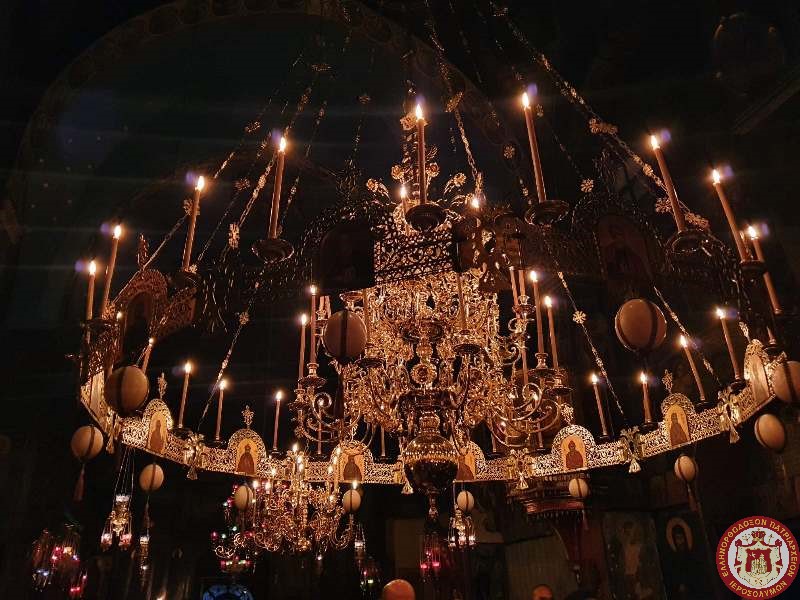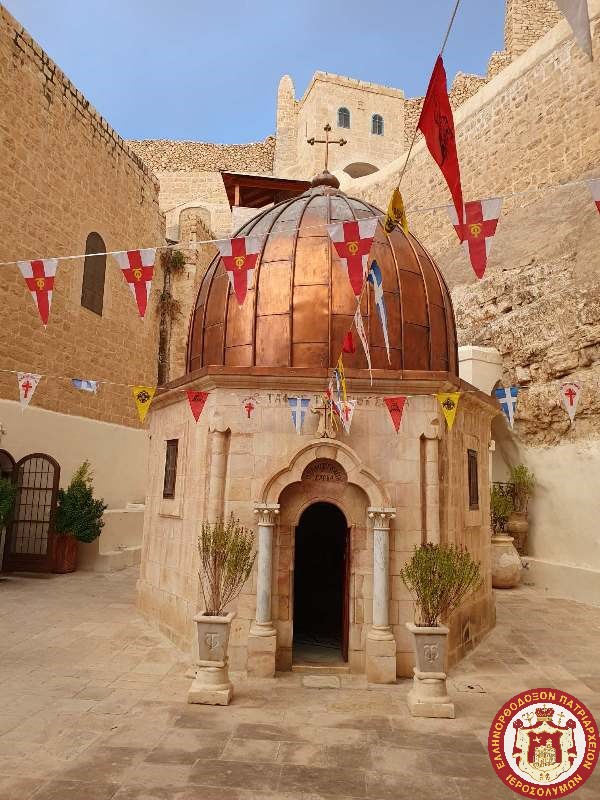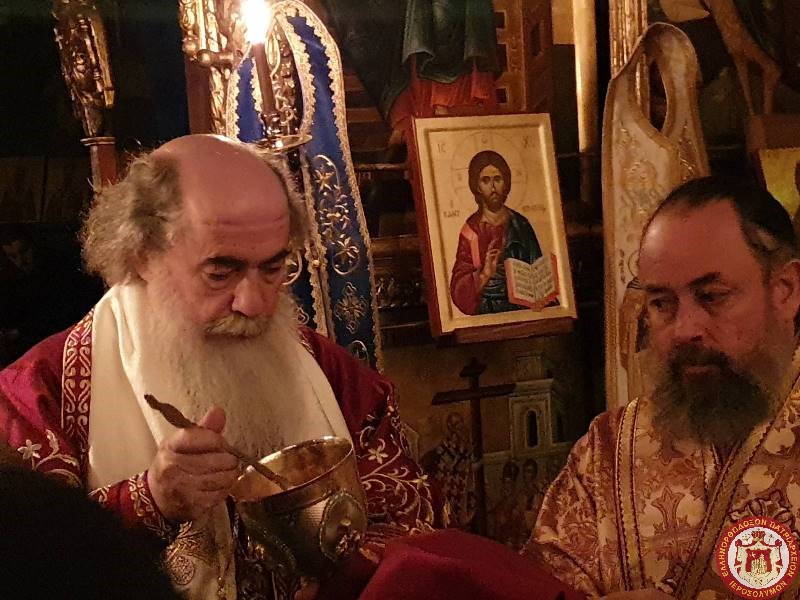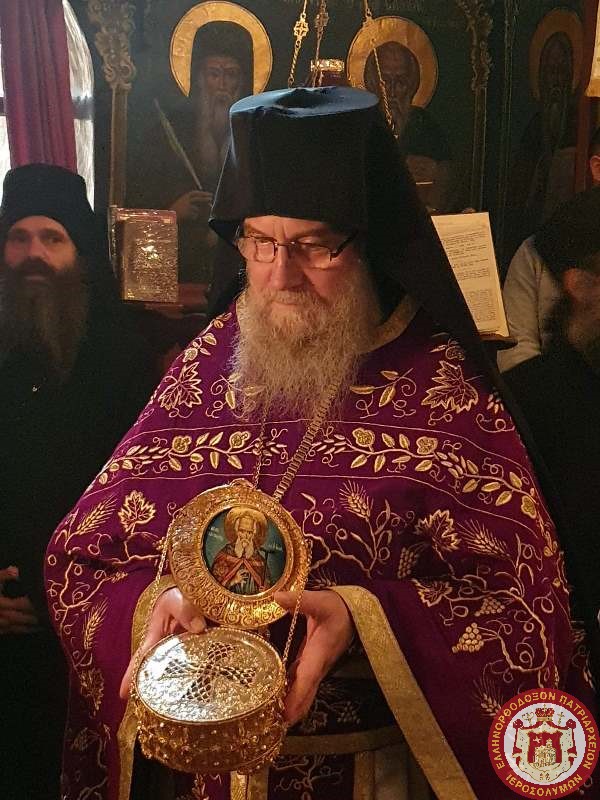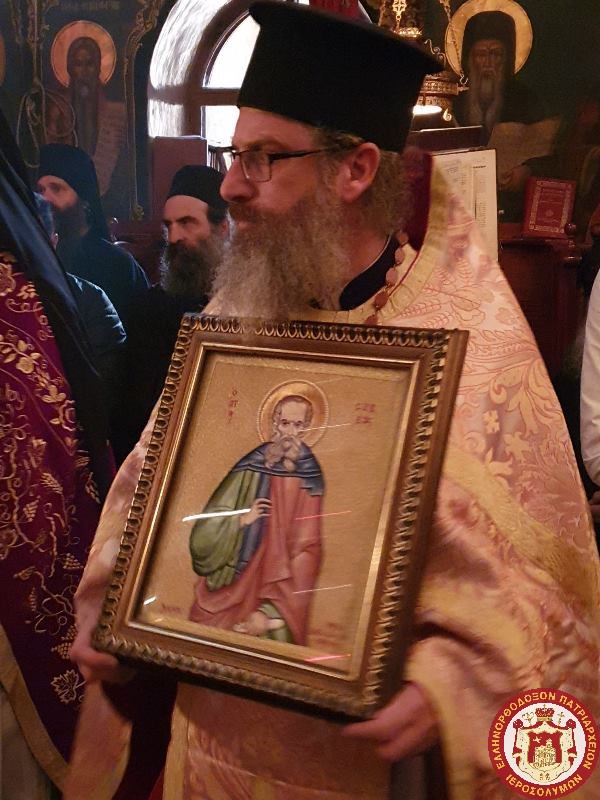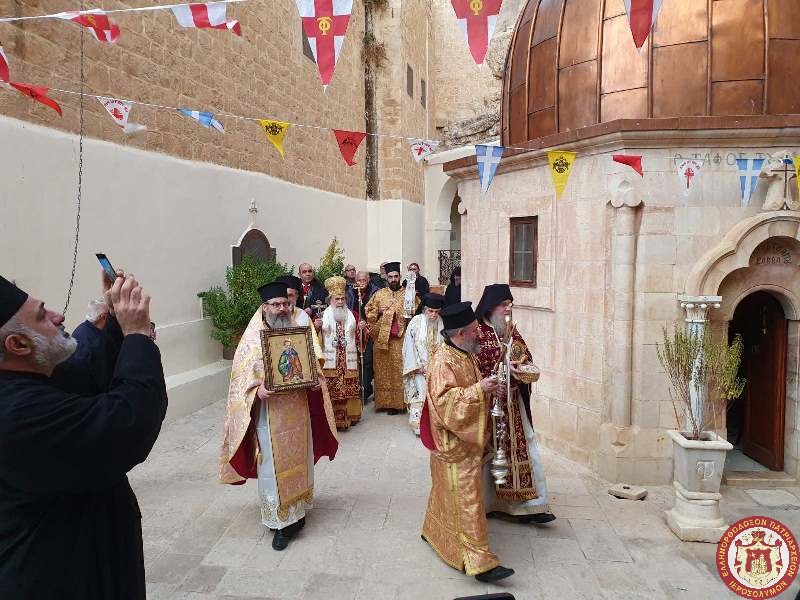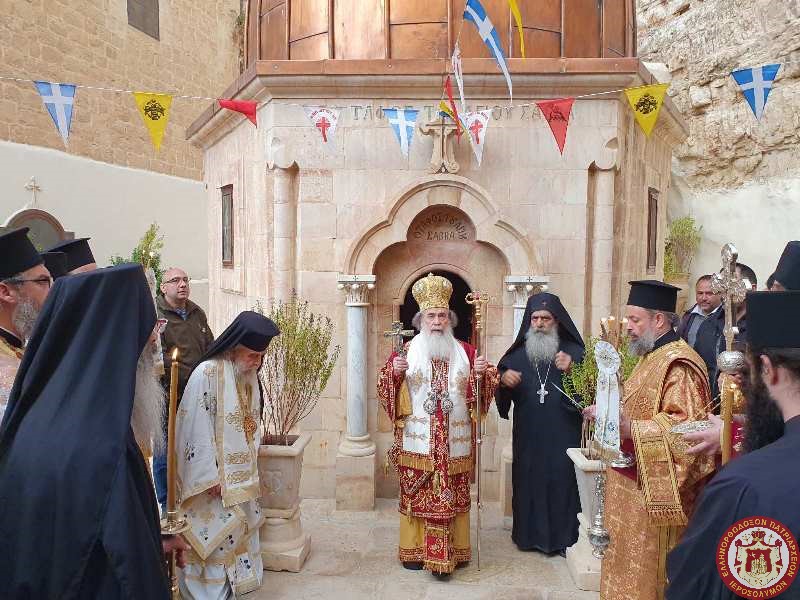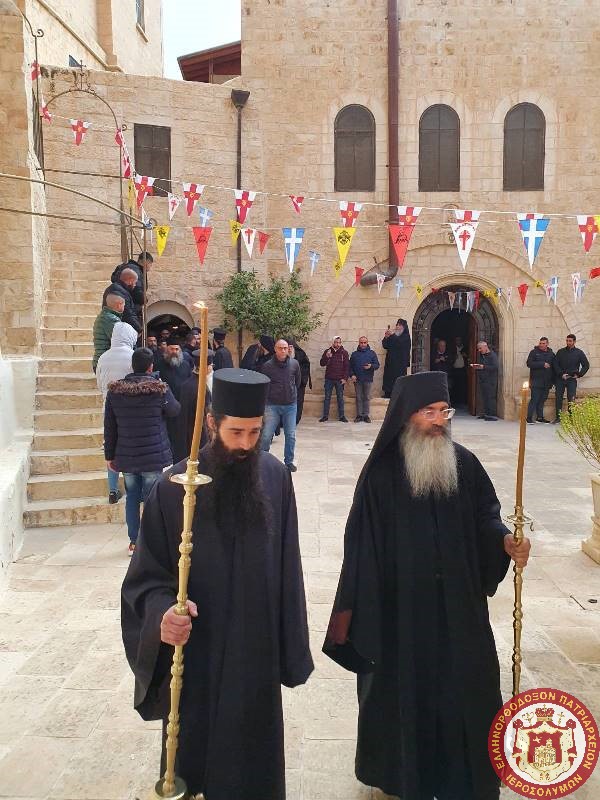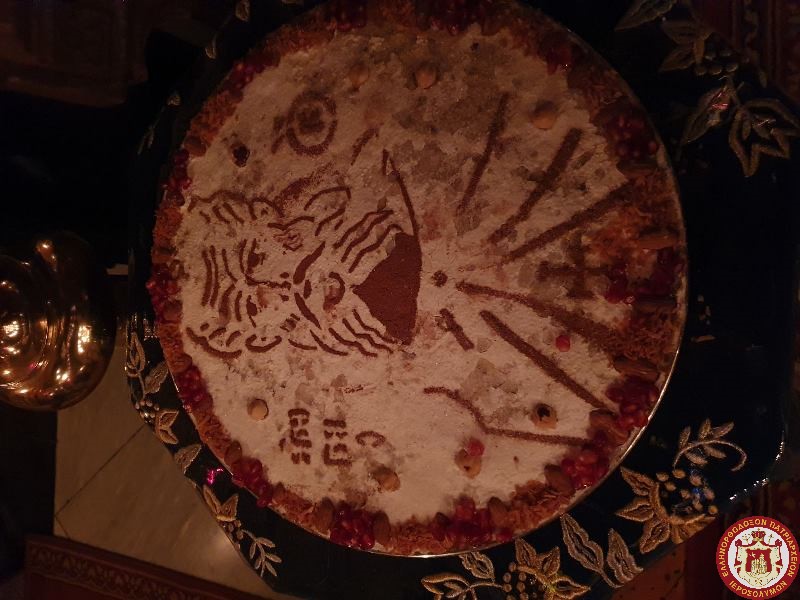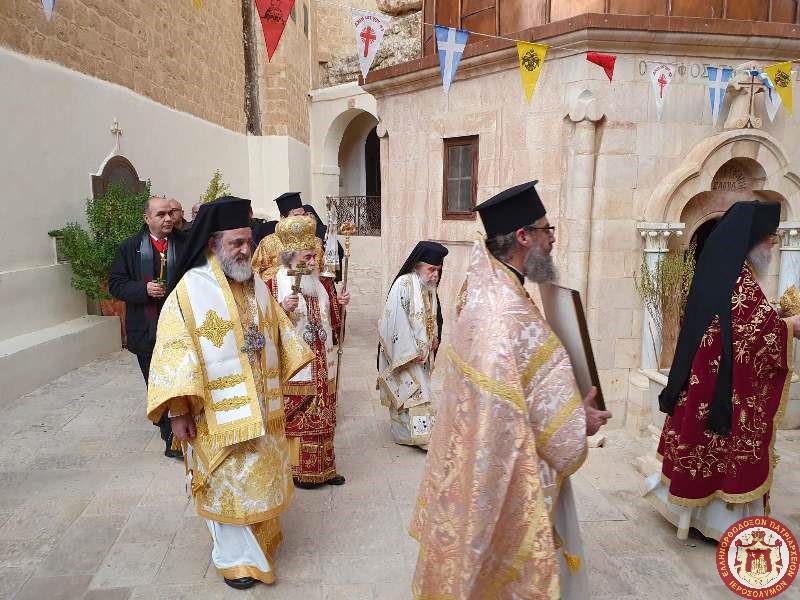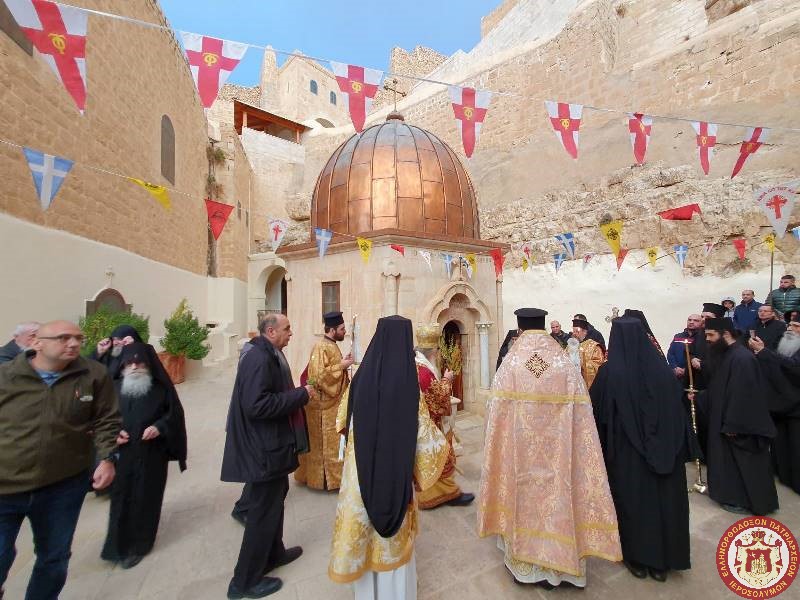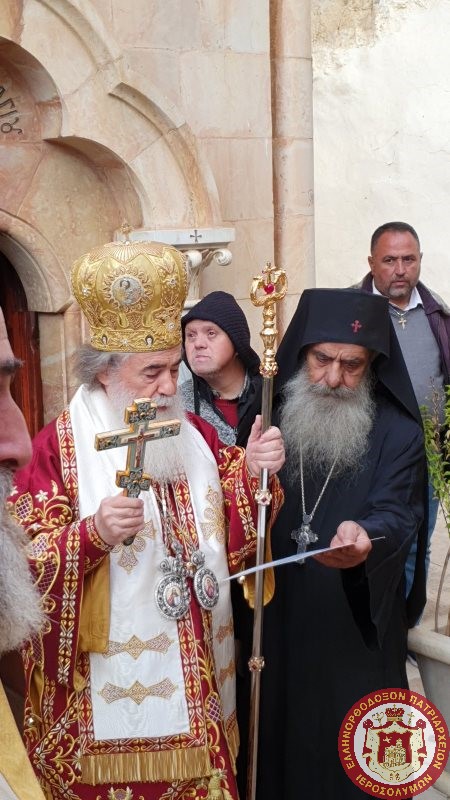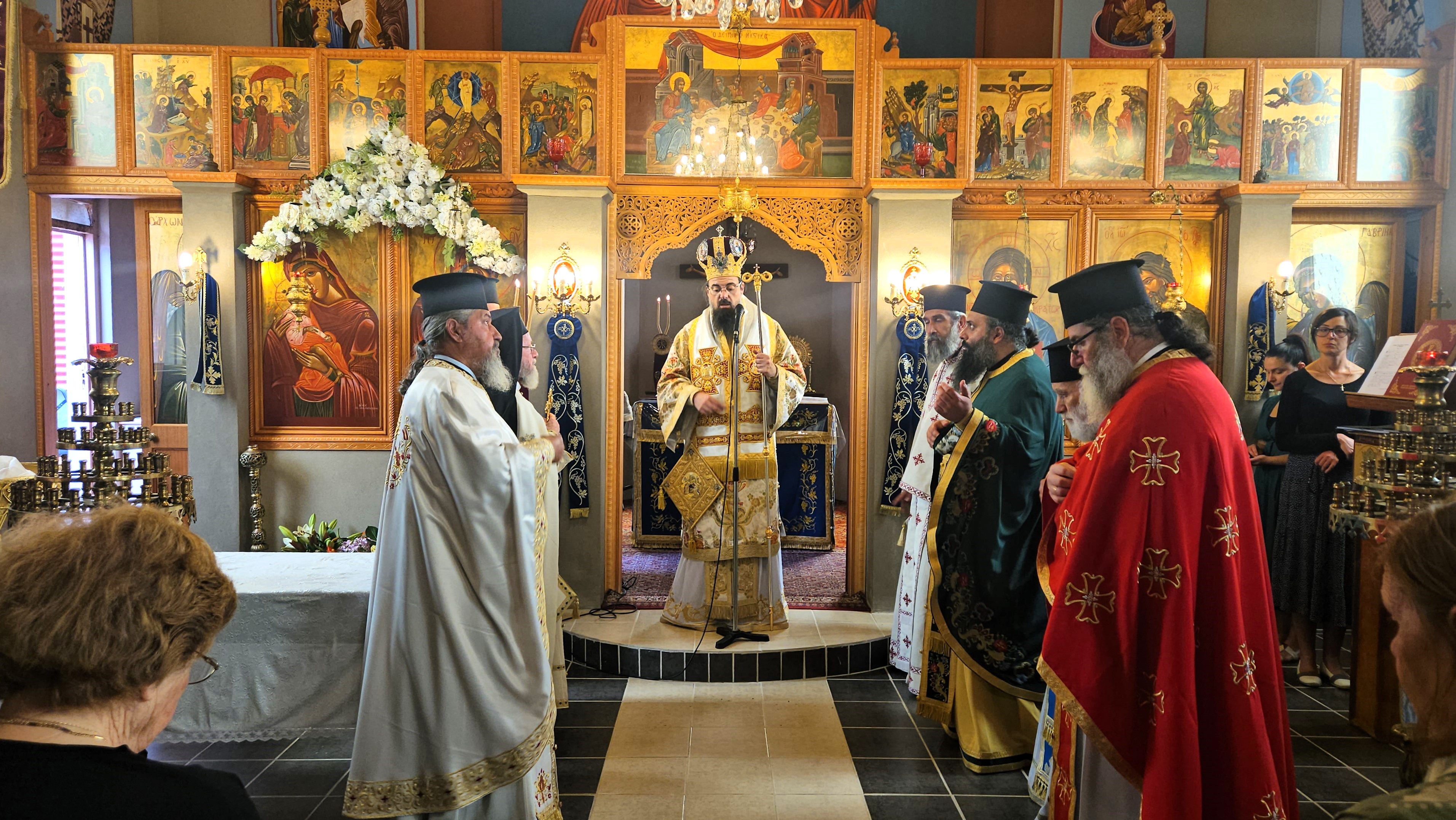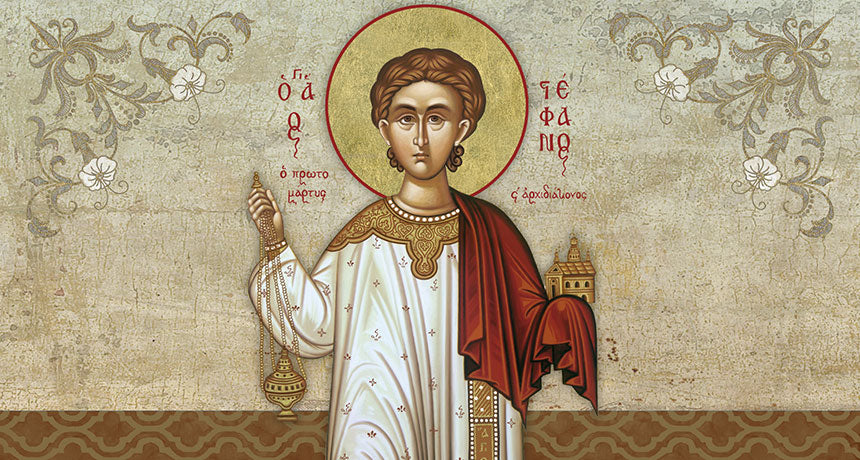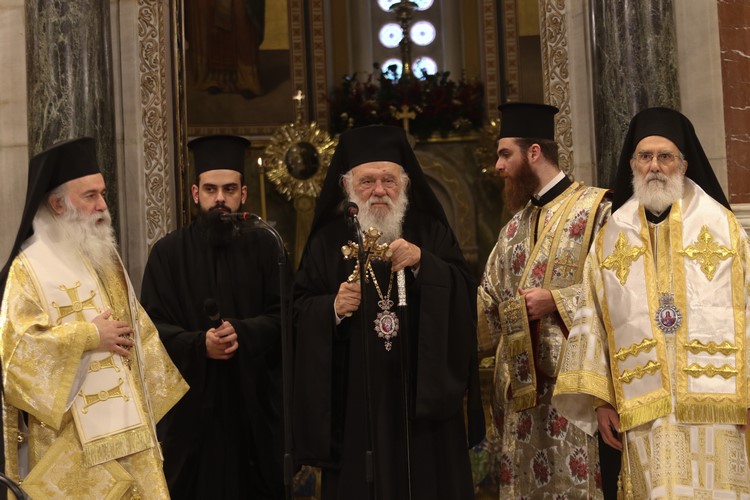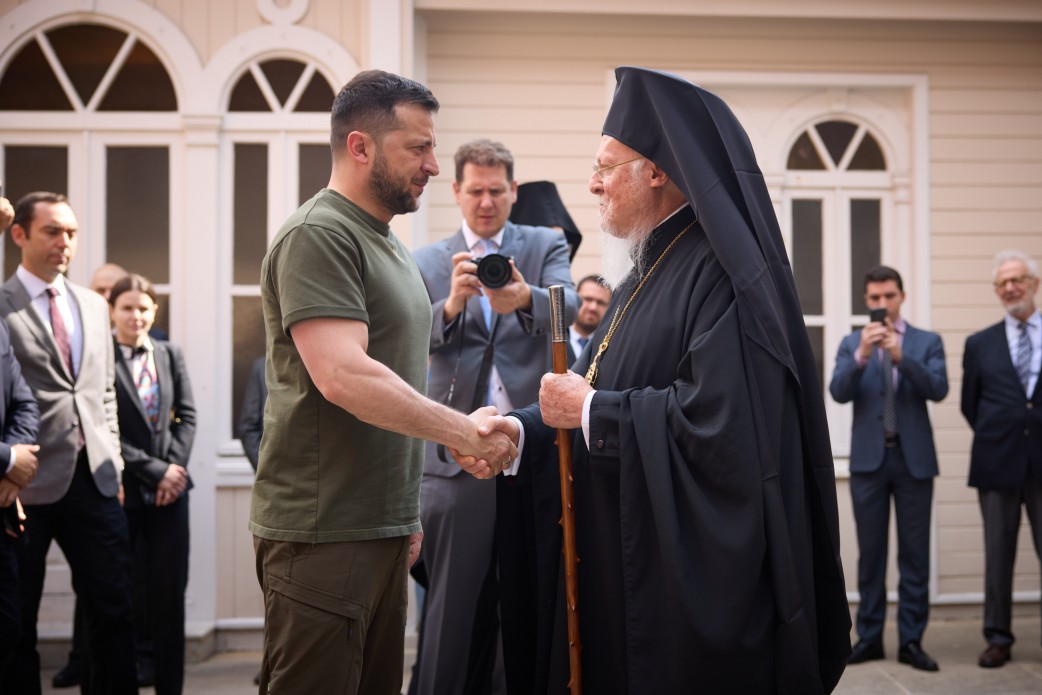Three-day Festivities at Saint Savva’s Lavra in the Holy Lands
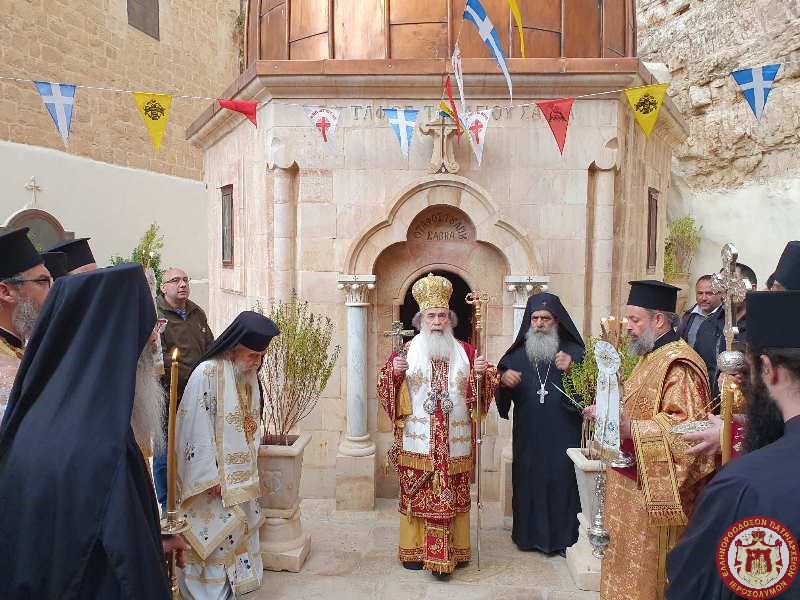

From Friday 4/17 December 2021 to Sunday 6/19 December 2021 the three-day festivities of our Holy Father John Damascene, our Holy Father Savvas the Sanctified and our Holy Father Nikolaos, Bishop of Myra of Lycia were observed at the Lavra of Saint Savvas, in the desert of Judea, on the right side of Brook Cedron, which leads to the Dead Sea.
The Lavra was founded by Saint Savvas, who came from Cappadocia in the Holy Land in AD 456 and for many years received his monastic training by Saint Euthymius the Great and his co-ascetic Saint Theoktistos. Beginning with this Lavra, Saint Savvas founded more Monasteries in Palestine and became the spiritual father and guide of thousands of monks, as well as a defender of the Orthodox Doctrine of the 4th Ecumenical Council in Chalcedon in AD 451, along with Saint Theodosios the Cenobiarch, as testified by the biographer of the Palestinian Saints, Cyril of Skythopolis.
In this famous Monastery, the commemoration of Saint John Damascene was observed on 4th December at the chapel dedicated to him, where his tomb also lies, by Metropolitan Joachim of Helenoupolis, who will stay at the Lavra until 6th December for the feast of Saint Nikolaos.
On Saturday 5/18 December 2021, an all-night Vigil was officiated by H.H.B. our Father and Patriarch of Jerusalem Theophilos on the commemoration of Saint Savvas the Sanctified. Co-celebrants to His Beatitude were their Eminences, Archbishop Aristarchos of Constantina and Metropolitan Joachim of Helenoupolis and Hagiotaphite Hieromonks. The chanting was delivered by Hierodeacon Simeon and his helpers in Greek on the right and by Archimandrite Philotheos in Arabic on the left. The Vigil was attended by many Orthodox faithful from Bethlehem, Beit Sahour, Beit Jala and northern Israel, at the honorary presence of the Consul General of Greece in Jerusalem Mr Evangelos Vlioras.
Before the Holy Communion, His Beatitude delivered the following Sermon:
“Make me go in the path of thy commandments; for therein do I delight. Incline my heart unto thy testimonies, and not to covetousness. Turn away mine eyes from beholding vanity; and quicken thou me in thy way” (Psalm 119:35-37) the psalmist proclaims.
Beloved Fathers and brethren in Christ,
Noble Christians
The desert rejoices today along with the land of the river Jordan, on the commemoration of our Righteous and God-bearing Father Savvas the Sanctified, in his Lavra, the place of his ascesis.
Our Holy Father Savvas was a sanctified vessel and a dwelling house of the Holy Spirit since he was in his mother’s womb, that is why he became the top of the righteous and equal to the angels. He managed this hearkening to David’s word: “Turn away mine eyes from beholding vanity; and quicken thou me in thy way” (Psalm 119:37).
Interpreting these words of David, Saint Athanasius the Great says: “Vanity is the obsession for the sightseeing, the vision of those not in need, and the misplaced imagination of the mind, which Paul explains by saying: “This I say, therefore, and testify in the Lord, that ye henceforth walk not as other Gentiles walk, in the vanity of their mind, having the understanding darkened, being alienated from the life of God through the ignorance that is in them, because of the blindness of their heart” (Eph. 4:17-18). Vanity of the mind means for someone to have the logical mind and not use it for the vision of the true things, but to allow it to deliver him to Satan the jailer. Not wishing thus, he says: “Turn away mine eyes from beholding vanity”. Because this also is an act of the grace of God”.
Indeed, Saint Savvas received the grace of God, because, as Saint John of the Ladder says: “The schooling and the upbringing that we have had since our childhood play their role in virtue and the monastic life, and either help or incommode us respectively”.
In other words, Saint Savvas renounced the vanities of this world since his childhood and sought the monastic life of the monks of the desert, as his biographer Cyril of Skythopolis confirms: “Savvas was predestined by God since he was in his mother’s womb and foreseen before his body was formed, according to the great prophet Jeremiah (ref. Jer. 1:4-5). Having scorned all things related to worldly life, he surrendered himself to the Monastery called Flavianes…. where he was trained in monastic life with precision and in a short while he learned the psalter and the rules of the coenobitic manner of living”.
Our Father Savvas learned the manner and the ways of ascesis as a disciple of the great ascetics of the desert, Theodosios the Cenobiarch, Euthymius the Great, Theoktistos and Gerasimos. He became a teacher of the desert, a spiritual beacon shining in the dark. “And having been a little chastised, they shall be greatly rewarded: for God proved them, and found them worthy for himself. As gold in the furnace hath he tried them, and received them as a burnt offering” (Wisdom of Solomon 3:5-6), according to wise Solomon.
This precisely is witnessed by the present Lavra, which the Saint founded, as well as the complete, incorrupt and fragrant relic of his which lies here. Even more, this is testified by the presence of the Monks of Saint Savvas, who ceaselessly pray for their souls and for all of us, and safeguard the ever-burning light of the consignment given to them by Saint Savvas the Sanctified: “The light of the Monks are the Angels, and the light of all the people is the life of the monks”, Saint John of the Ladder says.
These God-inspired words, my dear brethren, are the content of our Holy Father Savvas’ consignment, to all the monks, and especially to those who strive in ascesis in his Lavra. And this is so, because the God-bearing Savvas himself “attained to the orders of the Angels, whose life he didst emulate without blame” (Matins, praises Glory), as his hymnographer says.
As for us, who honour the commemoration of the equal-to-the-angels Savvas, who has boldness before Christ God, let us entreat him so that along with the Theotokos the Mother of our God, will ceaselessly pray for the remission of our sins and for the dawn of the light of the knowledge of the Sun of Righteousness, our Lord Jesus Christ to shine in the cave of our souls.
And let us say with the psalmist: “the heavens shall praise thy wonders, O Lord: thy faithfulness also in the congregation of the saints” (Psalm 89:5). And in more detail; the heavens shall praise Thee with the angelic powers O Lord. The essence and power of God are worth admiration. In the Church of the Saints, namely those in heaven, unceasingly the Angels praise Thee. Amen. Many happy returns and blessed Christmas!”
A meal followed the dismissal of the Divine Liturgy, after which, His Beatitude thanked God for this spiritual feast and accompanied by the Fathers, returned to Jerusalem via the Monastery of Saint Theodosios the Cenobiarch.
From Secretariat-General
Source: en.jerusalem-patriarchate.info
